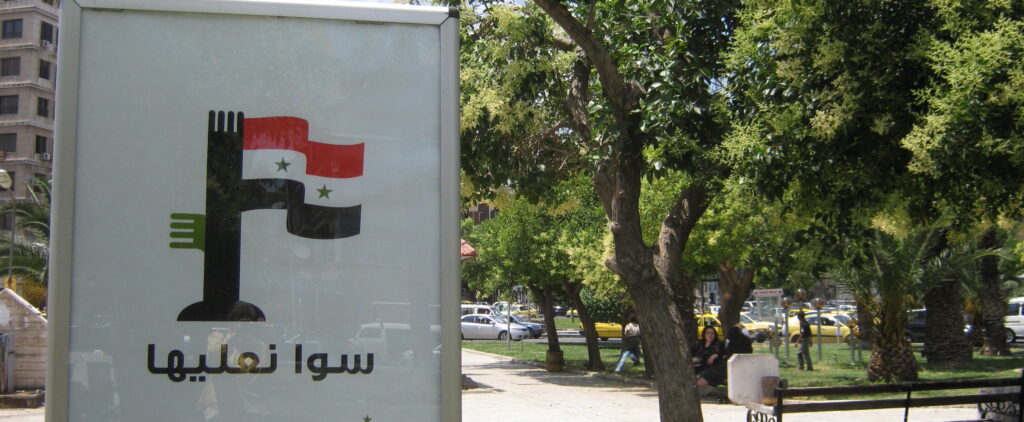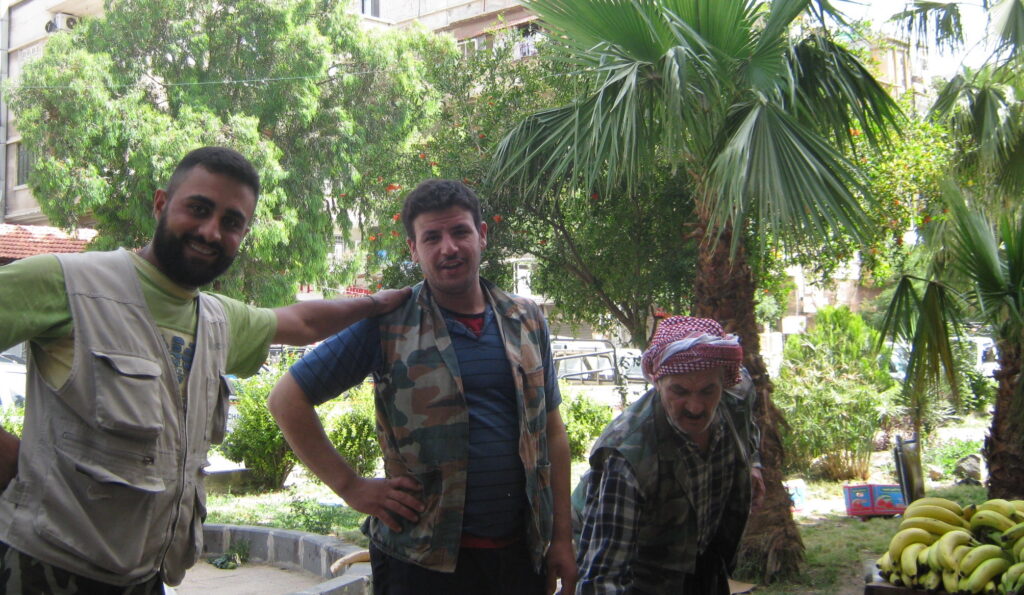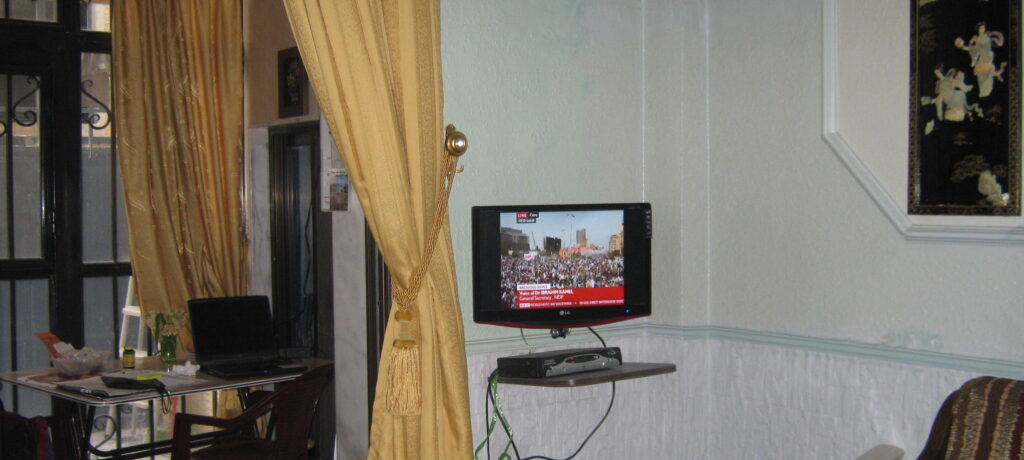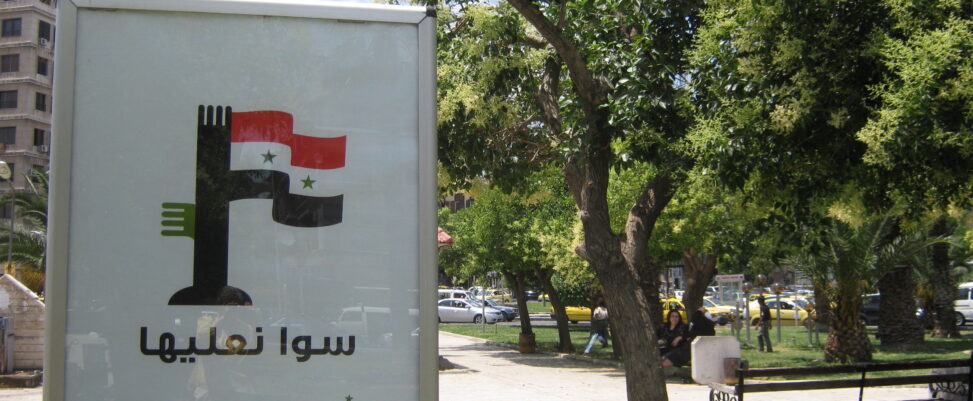
Feb, 4, 2022. by B Nimri Aziz
Dara’a, Syria was the hometown of Khalid. In the years leading up to 2011, he lived between there and Damascus. He was in his 3rd year studying sociology at Damascus University. He shared a sparely furnished apartment in a working-class neighborhood of the capital with fellow Dara’a students. And all boasted that Dara’a natives were the most diligent and intelligent of all Syrians, naming professors, military officers and other successful Dara’a-born Syrians.
Khalid promised me a tour of his city. And we eventually went there together, but only after the uprising had begun, his beloved birthplace transformed into a garrisoned city with checkpoints along now subdued streets. Dara’a would fall into rebel hands but was recently liberated by government forces. (Although Khalid himself would not witness any of those battles.)
Neither Dara’a city nor its countryside included Syria’s notable archeological sites or charming parks where families enjoy Friday outings. In 2011 because of its proximity to the Jordanian border, Dhara’a became a point for the infiltration into Syria of rebels and arms planned and funded by the U.S., U.K., Israel and Jordan.
We’d known each other two years, before political unrest erupted in Tunisia in 2011, spread to Egypt and finally reached Syria. From among those four friends, why Khalid alone decided to join the opposition movement, I don’t know. Maybe it was the security service indiscriminately detaining young men. Maybe he was recruited by a trusted friend. Maybe it was his fierce Dara’a pride.
Today, only he among those students can’t be traced. He went missing five years ago and none of us has had news of him since then.
Nobody could openly criticize the Syrian government. Sometimes a subtle remark might indicate someone’s discontent. Not from Khalid though. In fact, he and his friends voluntarily proffered warm comments about their youthful, modern leader. They appeared genuinely impressed that ‘Dr. Bashar’ had studied abroad, that he moved about in public, that he showed no military ambitions. Al-Assad had recently returned from a tour of South American countries where he’d been warmly welcomed. This following his celebrated reception in Paris by President Sarkozy.
Public optimism grew after Syria and Turkey signed new treaties to open their borders to tourism and expanded trade. Internet access was widening. Syria’s high-quality films and its industrial and agricultural produce were in demand across the region, food was plentiful and the economy thriving. All this despite the obstinate U.S. sanctions begun in 1979 and regularly expanded–to the present.

During those early years of Al-Assad’s leadership Khalid felt encouraged. So he was shocked by the president’s reaction to the trouble that erupted in Dara’a in 2011, after the governor there had severely punished schoolboys who’d painted graffiti in support of the far-away Tunisian protests. Not only did the president not excoriate the governor; he didn’t call for an investigation into claims of torture. Then protests by parents of the jailed Dara’a boys led to demonstrations elsewhere; troops were sent to halt the marches; arrests and jailings began. That incident sparked a fire which, by stages, would spread through the nation.
The initial uprising in Dara’a had been quelled by the time I travelled there with Khalid a few months later. Along the route from Damascus our bus was stopped at checkpoints. Passing through the city we gazed in silence at army posts newly installed at intersections. The city was palpably tense. Three friends who stopped by to see Khalid stayed the night and spoke together in hushed tones. It was not a cheerful reunion.

Several months passed, by which time I’d returned to New York, not knowing if a new visa to Syria was advisable. Or possible. Khalid and I may have spoken by phone meantime; I forget. Then, unexpectedly, he called, announcing his arrival in NYC; he was attending some U.N. human rights conference, he said. The next day he visited me at home. Only then did I suspect he was working for the opposition, probably the Free Syrian Army, the U.S.-funded rebel force that emerged early in the conflict.
Khalid never talked to me about any political mission. Though he spent much of his time operating two laptops as well as a number of phones, linking up several parties simultaneously. He never discussed this with me. Nor did he hide it, nor inquire about my feelings concerning growing tensions and protests in his country. Was my home a safe location from which to set up his network, to undertake communications training? That hadn’t occurred to me.
I would only realize how deeply involved Khalid was six months later when he returned here. This time he was a guest of the State Department. He admitted his excitement about meeting the anti-Syria U.S. senator, John McCain. I suspect he helped prepare a secret visit by the senator into rebel-held areas of Syria.
We didn’t meet that time; he was busy traveling from city to city, he said. But we talked by phone about his Dara’a university mates.
One had left Syria, and was in Beirut from where he would take a boat to Greece, then trudge across Europe with thousands of other refugees. Among family he left behind was his brother, Samir, whom we both knew. Samir was a lawyer in the Syrian army, posted in Palmyra in the eastern desert. (Either he could not or didn’t want to leave.) Their family was told that Samir was among those captured by ISIS rebels when they swarmed that city. Samir was imprisoned; that’s all they knew. Later, after Syrian forces successfully retook the city, no trace of him could be found. Samir’s family had not given up hope that he would be alive, somewhere. By 2021, there was still no word about him. The same for Khalid. After McCain’s Syria visit, I lost contact with him. So did the other lads.
Tell me: do these two missing Syrian patriots cancel out each other?
(Khalid’s and Samir’s names have been changed; otherwise all the above is completely factual.)

